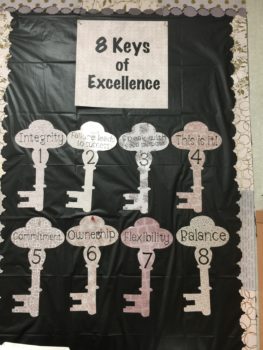 Kids’ Learning with AI
Kids’ Learning with AI
I was born in 1981, which puts me just on the cusp of generations. I’m at the tail end of the Gen X generation by some timelines and right at the beginning of the Millennial generation on others. Some sociologists even label people born within a few years of my birthday as Xennials, a microgeneration to mark the small and transitional period during which I was born. Personally, I feel that the other Xennials and I got the best of both worlds. We experienced the care-free and independent lifestyle of the Gen Xers, but I got to live my teenage years as the world shifted into the fully digital age. This means I also have a blend of characteristics from the two generations: independent and adaptive. I am also adventurous, creative, tech-savvy, and plugged into the idea that the world is accessible to me, both in terms of information and in opportunity. [Read more…]

Dr. Kevin Myers is an Executive Administrator for YPI Charter Schools and the Principal at Bert Corona Charter School. He has served the Los Angeles community as a teacher, administrator, and grant director for over 20 years. He has a passion for developing teachers and educational leaders to engage in the challenging work of bringing equity to our schools and our communities. Dr. Myers has developed an expertise in supporting underserved communities, building effective and cohesive school leadership teams, and engaging parents to uplift their communities through engagement at their children’s schools. He wrote his dissertation on teacher self-efficacy and job satisfaction and is a strong advocate for supporting and working with teachers to build a strong and successful school community. In addition to his work at YPI Charter Schools, Dr. Myers is also a faculty member at Cal State Fresno and works with student teacher candidates to earn their credentials as they work through the CalState TEACH program.
 Is Your Child Disruptive at School?
Is Your Child Disruptive at School? Writing in the AI Era
Writing in the AI Era Growth Mindset: The Power of Yet
Growth Mindset: The Power of Yet Get Support for Your Child at School
Get Support for Your Child at School